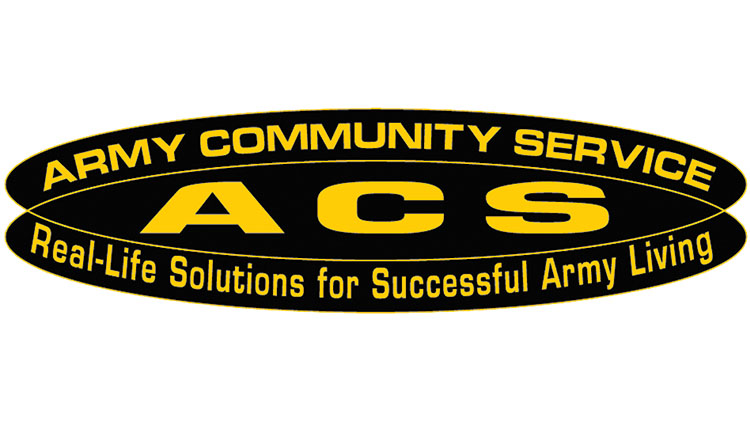- Learn About Army Life
-
Army Family Team Building (AFTB)
Army Family Team Building is a series of training modules taught through your local Army Community Service or Family Program’s office that cover topics such as basic information about the Army, personal growth skills and leadership skills. AFTB improves personal and Family preparedness which enhances overall Army readiness and helps America’s Army adapt to a changing world.
AFTB helps you to not just cope with, but enjoy the military lifestyle. Many of the courses can be applied toward resume’ and career building, self-development and leadership skills. AFTB provides the knowledge and self-confidence to take responsibility for yourself and your Family. The training is available to Soldiers, Family members of all Soldiers, Department of Defense civilians and volunteers
My Army OneSource: Army Family Team Building
Contact your AFTB Program Manager more information.
- Information & Referral
-
A comprehensive resource file provides information on both military and civilian agencies to Soldiers, family members and DA civilians. Trained personnel will assist clients to find the appropriate and available resources.
Where available, this program offers a special Host Nation Services which includes un-certified translations of host nation language correspondence and bills.
For further assistance or help feel free to contact ACS.
- The Lending Closet
-
The Lending Closet
The Lending Closet provides temporary household essentials to active-duty service members (all branches), their families, and DoW civilians transitioning to or from SOUTHCOM, USAG-Miami, and supporting units.
Items Available:
- Pots, pans, dishes & utensils
- Coffee makers & toasters
- Basic kitchen essentials
- Small household necessities
Loan Period:
Up to 30 days (Extensions upon request)
What You'll Need:
Valid DOW ID
PCS Orders (Offer letter for DOW Civilians)
For more information, contact the ACS Information & Referral at (305)437-2659.
Hours of Operation:
Monday-Friday 8:00 a.m. - 3:00 p.m.
Located in the USAG Miami Building, on the second floor in the E2005 suite.
- Violence Prevention and Education
-
The US Army Family Advocacy Program is dedicated to the prevention, education, prompt reporting, investigation, intervention and treatment of spouse and child abuse. The program provides a variety of services to soldiers and families to enhance their relationship skills and improve their quality of life. This mission is accomplished through a variety of groups, seminars, workshops and counseling and intervention services.
- Emergency Placement Care Program (EPC)
- Victim Advocacy Program (Domestic Violence)
- Sexual Harassment and Assault Response Program (SHARP)
- FAP education and prevention
- New Parent Support Program (NPSP)
- Support groups and enrichment classes
Contact the Family Advocacy Program Manager to begin!
Sexual Harassment Assault Response and Prevention:
SHARP 24-hour Response Hot Line: 877-995-5247
Victim Advocacy Program
The Family Advocacy Program: Victim Advocacy Services Program provides comprehensive assistance and support to victims of domestic abuse and sexual assault, including crisis intervention, safety planning, and assistance in securing medical treatment for injuries, information on legal rights and proceedings, and referral to military and civilian shelters and other resources available to victims. Victim Advocacy services are available 24 hours a day 7 days a week to Soldiers and Family members
New Parent Support Program
The Army’s New Parent Support Program is a key secondary prevention program within the Family Advocacy Program which falls under the umbrella of Army Community Service. Established in 1995, this voluntary participation program helps Soldiers and Family members who are expecting a child, or have a child or children up to 3 years of age, to build strong, healthy military families. Through a variety of supportive services including home visits, support groups and parenting classes, the NPSP helps Soldiers and Families learn to cope with stress, isolation, post-deployment reunions and the everyday demands of parenthood.
Emergency Contacts
If you or someone you know is in immediate danger, call 911
FLORIDA DOMESTIC VIOLENCE HOTLINE: 1-800-500-1119
Domestic Violence Hotline (24 hours a day): 1−800−799−SAFE (7233) or TTY 1−800−787−3224
If you or someone your child is in immediate danger, call the FLORIDA DEPARTMENT OF CHILDREN AND FAMILIES HOTLINE, (800) 96-ABUSE (22873)
You can also call (305) 437-2734 to contact a Domestic Abuse Victim Advocate, 9301 NW 33rd Street, Installation Services Center, Army Community Service (Family Support,) 2nd Floor, Suite E2019, hours: Monday-Friday, 7am - 4pm
To report suspected abuse:
Installation Reporting point of contact (RPOC) for Child Abuse: Department of Emergency Services (DES) - (305) 437-2848
The US Army Family Advocacy Program is dedicated to the prevention, education, prompt reporting, investigation, intervention and treatment of spouse and child abuse. The program provides a variety of services to soldiers and families to enhance their relationship skills and improve their quality of life. This mission is accomplished through a variety of groups, seminars, workshops and counseling and intervention services.
Domestic Violence Reporting Options:
The U.S. military is built upon the foundation of the Commander's "need to know" everything about the safety and well-being of the Service Member and their Family in order to continually assess the Service Members' fitness for duty and any potential impact on "mission readiness." However, the Department of Defense has recently made a critical exception to this “need to know” for domestic-violence victims giving each individual the option of either making a "restricted" or "unrestricted" report.
What are Restricted and Unrestricted Reports for Domestic Violence?
- Unrestricted Report - This option is for victims of sexual assault who desire medical treatment, counseling, legal assistance, SARC/SHARP Specialist and VA/SHARP Specialist assistance, and an official investigation of the crime. When selecting unrestricted reporting, you may report the incident to the SARC/SHARP Specialist or VA/SHARP Specialist, request healthcare providers to notify law enforcement, contact law enforcement yourself, or use current reporting channels, e.g., chain of command. Upon notification of a reported sexual assault, the SARC/SHARP Specialist will immediately assign a VA/SHARP Specialist. You will also be advised of your right to access to legal assistance that is separate from prosecution resources. At the victim's discretion/request, the healthcare provider shall conduct a sexual assault forensic examination (SAFE), which may include the collection of evidence. Details regarding the incident will be limited to only those personnel who have a legitimate need to know.
- Restricted Report - Sexual assault victims who want to confidentially disclose a sexual assault without triggering an official investigation can contact a SARC/SHARP Specialist, VA/SHARP Specialist, or a healthcare provider. By filing a restricted report with a SARC/SHARP Specialist, VA/SHARP Specialist, or a healthcare provider, a victim can disclose the sexual assault without triggering an official investigation AND receive medical treatment, advocacy services, legal assistance, and counseling. Victim conversations with a SARC/SHARP Specialist or VA/ SHARP Specialist about the sexual assault are confidential communications, not to be disclosed to others, including law enforcement or the chain of command, except in a few very rare circumstances. Discussing a sexual assault with a chaplain is not the same as filing a restricted report, but communications with a chaplain are privileged under Military Rule of Evidence 503 and AR 165-1.
Regardless of the path the victim chooses, either unrestricted or restricted, all victims are eligible for services that include medical evaluation and counseling, if so desired.
The Family Advocacy Program (FAP) outlined in AR 608-18 focuses attention on family life and the needs of spouses, children, and Soldiers. U.S. Army Garrison-Miami has procedures and policies that detail responsibilities for the investigation and management of reported incidents of child/spouse abuse cases. Other programs included under FAP are the New Parent Support Program (NPSP), Victim Advocate Program (VA), and Sexual Harassment/Assault Response Program (SHARP).
Services Provided:
Assistance is available if you or someone you know is experiencing violence in the home (child or spouse abuse.) The FAP Program Manager provides information and assistance in reporting cases of abuse and making referrals for those in need of emergency shelter, medical assistance, and /or counseling.
Identification:
To identify Soldiers and family members who are involved in child abuse or neglect and/or spouse abuse.
Prevention:
To encourage self-referral as the primary way a family gets the help it needs. The program's emphasis is on strengthening families and keeping them together, rather than on punishment. Family members are encouraged to seek help when they recognize warning signs that indicate they may be mistreating their children or failing to communicate effectively with their spouses.
Education:
To encourage all people to be alert and to report a situation dangerous or harmful to a child, and to educate community members on reporting suspected child maltreatment and spouse abuse.
Classes:
Domestic Violence and Child Abuse prevention briefings, Stress Management, Anger Management, Marriage and Relationship Workshops, Grief, Loss and Trauma Trainings.
Treatment:
To provide referrals for individual, martial & family counseling; including the use of appropriate child management techniques, and how to improve couples communication skills.
Victim Advocates:
Provide assistance to victims of domestic violence to include information on obtaining restraining orders, accompanying a victim to court, and information/referral to appropriate agencies.
Call (305) 437-2734 to contact a Victim Advocate or contact the Domestic Violence Hotline (24 hours a day) 1-800-799−SAFE (7233) or TTY 1−800−787−3224.
Do you Have a Plan?
Most cases of domestic violence the victim is not prepared to be on their own and as a result the return to the abuser. Before leaving an abusive situation make sure you have a plan in place. Use this site to prepare your plan: http://www.riverside.courts.ca.gov/selfhelp/dvchecklist.pdf
What is Partner Abuse?
Partner abuse is defined as a pattern of behavior resulting in emotional/psychological abuse, economic control, and/or interference with personal liberty that is directed toward a person of the opposite sex. In other words spouse or partner abuse can include something as obvious as a slap or a hit, but also includes less noticeable controlling, threatening or emotionally abusive behaviors. No one needs to stay in a relationship where they are being physically or emotionally abused by their partner or spouse. Take the Relationship Quiz to find out more about your relationship.
What help is out there for a victim?- National Domestic Violence Hotline: (800) 799-7233
- Roxcy Bolton Treatment Center: (305) 585-RAPE (7273)
- Jackson Memorial Center Emergency Room: (305) 585-6910
- Clinic Behavioral Health: (305) 437-0519
These are just a few of the places that can provide good advice to anonymous callers seeking answers. In many cases, the caller may be told that they can give their name, come in for help, and still receive private information, medical care and other support without having to initiate a Family Advocacy assessment, tell command or make a police report.
There are shelters available in the community for female victims of abuse and their children where they can receive private, effective information on how to heal their relationship or escape, depending on the victim’s desires. For victims who may be scared that their family will lose their source of income if a soldier is kicked out of the Army or put in prison or jail for spouse abuse, the military has programs that may continue to support victims in these cases.
Many foreign-born victims may have been threatened by their spouse that they will be deported or lose citizenship if they tell about the abuse. The Relocation Readiness Program can help foreign born spouses find help and supportive friends.
I’m not a victim, but I suspect that my friend is. What can I do?
The National Domestic Violence Hotline can give great tips and information on how to help a friend. Please consider referring a friend to professional help by asking them to contact the USAG-Miami Victim Hotline or to go to Social Work Services located in the Health Clinic on the installation. Do not attempt to take care of things yourself. Domestic Violence can be a very complex and potentially dangerous issue.
How about my privacy?
The military is committed to finding ways for victims of abuse to get the best, most private help possible. In many cases an abused partner can receive completely private help depending upon how severe the situation is, if they first contact either a victim advocate, or a health care provider at one of the on-post clinics or the Roxcy BoltonTreatment Center at Jackson Memorial Hospital. In cases where there is an obvious danger of imminent threat of harm or the presence of child abuse, a care provider may have to notify others to ensure the safety of all persons involved in an abusive situation. Anyone needing information or help for partner or spouse abuse, who is worried about being reported or about their privacy should still call someone. Victims can ensure their privacy by not giving their name until they feel completely informed about the best options they have for getting help. Contact a Victim Advocate at (305) 437-2734 Monday-Friday 7 am – 4 pm to find out more about victim privacy.
Help for an abusive partner:
Many spouses would like to find help for their abusive partner and many abusive partners may welcome this support. There are many counseling options and support groups in the community. Personnel at any of the listed numbers can provide information on help available. If a partner is being physically abusive marriage or couples counseling is often not a good choice, but there are many other very good options for help.
What is the Commander’s role?Commanders and other leaders are required to report family violence, to seek help for all parties involved and to help ensure safety to the fullest extent possible. Commanders and the military or local police can provide a great deal of effective help, including documenting the abuse, arresting the offender, helping with securing a military or civilian no-contact/protective order to ensure the victim is safe, helping to find legal assistance and ordering an offender/service member to treatment. Although commanders and leaders are concerned about the safety of families in their units and cannot fully ensure this safety unless they know about abuse, they also understand that many victims will never come forward unless they are provided an option to keep their situation completely private.
How are children affected by domestic violence?Children usually know something is not right, even if they haven’t been in the room during a family violence incident and may show different reactions according to their age. Most offenders have learned their behavior from growing up in an abusive home of their own. Younger children may exhibit self-blame that can precipitate feelings of guilt, worry, and anxiety. Children may become withdrawn, non-verbal, and exhibit regressed behaviors such as clinging and whining. Eating and sleeping difficulty, concentration problems, generalized anxiety, and physical complaints (e.g., headaches) may also occur. If you would like to find out more information, please contact any of the listed numbers on this page.
Child Abuse Prevention:
If you suspect a child is being abused or neglected in Florida, the law requires you to report it to the Florida Abuse Hotline at 1-800-96-ABUSE (1-800-962-2873). The Installation Reporting Point of Contact (RPOC) for Child Abuse: Department of Emergency Services (DES) - (305) 437-2848.
The Family Advocacy Program (FAP) outlined in AR 608-18 focuses attention on Family life and the needs of spouses, children, and service members. USAG-Miami has procedures and policies that detail responsibilities for the investigation and management of reported incidents of child and spouse abuse cases.
Definitions of Child Abuse and Neglect:
State of Florida https://childwelfare.gov/topics/systemwide/laws-policies/statutes/define/?hasBeenRedirected=1
Department of the Army http://www.apd.army.mil/pdffiles/r608_18.pdf
For more information on reporting child abuse and neglect, please read Reporting Abuse: http://www.ounce.org/CAP2009/Advocate_Booklet.pdf#nameddest=Reporting_Abuse
When to Leave Your Kids Home Alone:
Children left unsupervised or in the care of young siblings are at increased risk for accidental injury and behavioral and academic problems. Florida law does not have a hard and fast rule about when children can be left home alone, but instead expects parents to take all of the circumstances into account when deciding what level of supervision is needed.
Because children mature at different rates, there is no single, pre-set age at which children are considered “old enough” to stay home by themselves for short periods. Parents must evaluate their child’s individual development and physical capabilities.
The National SAFE KIDS Campaign recommends that children not be left alone before the age of 12. Many other children will not be ready until later than that. Also, experts caution that older siblings are generally not ready for the responsibility of supervising younger children until the age of 15 or older.
http://www.dcf.state.fl.us/programs/childwelfare/caregivers/whentoleaveyourkidshomealone.shtml
- Family Readiness Group
-
The Family Readiness Group (FRG) is organized to provide mutual support for a unit's family members. FRG forms the third component of the Army's family support system during deployment. It operates during periods of normal operations, as well, in close coordination with the affiliated unit and, if convenient, with ACS or the Reserve Component Family Program Coordinator's Office. The FRG also serves as an important source of inspiration, training, and support to empower Army families to increase and enhance their self-reliance.
Goals of the Family Readiness Group: To provide an opportunity for family members to mutually support each other, prevent isolation, provide information, help involve families in unit activities, and refer families to community resources when needed.
The two distinct levels of effort of Family Readiness Groups:
- Activated function - The effort is concentrated around events such as pre-deployment and mobilization, deployment, and the immediate post-deployment periods. FRGs provide support to family members and soldiers by offering information on unit activities and meetings, and referral assistance about community resources. Activities during this level are geared toward helping family members prepare for imminent separation, cope during the separation, and to bond with other family members in the unit.
- Sustaining function - There is a reduced degree of interaction between FRG volunteers and family members as well as within the FRG organization. This period occurs mainly during non-deployment periods. During this period, FRGs continue to update rosters of family member addresses and telephone numbers, continue regular meetings between FRG representatives and unit leaders, and, through group meetings or telephone contacts, provide welcoming, sponsorship, orientation, and networking support for new family members and families in crisis or transition.
- Survivor Outreach Services
-
The mission of Survivor Outreach Services (SOS) is to advocate on behalf of all Families who have suffered the loss of an active duty Service Member and to educate the community about the Survivor Outreach Services Program. The program strives to build a unified support program which embraces and reassures Survivors that they are continually linked to their Military Family for as long as they desire. We provide connectivity to a wide range of resources including support groups, information briefings, links to other organizations that support Survivors and annual activities to recognize Service Members and their Surviving Families.
Our Fallen Service Members have paid the ultimate sacrifice. Their Families deserve our respect, gratitude, and the very best we can provide. If you’re a surviving Family member, Survivor Outreach Services (SOS) offers you access to support, information, and services, closest to where you live, when you need it and for as long as you need it.
Survivor Outreach Services is part of the Military Casualty Continuum of Care. It’s designed to provide long-term support to surviving Families of Fallen Service Members. Our goal is to reassure Survivors that they remain valued members of the Military Family.
Survivor Outreach Services helps in many ways:
Support Coordinators. The loss of a loved one often results in tremendous grief, which can be overwhelming. When faced with a tragedy, you may be wondering what direction to take. Your SOS Coordinator is your link to finding the resources and answers that will work best for you. Your local Support Coordinator is available to meet with you as you journey through this difficult transition by providing direct services as well as information, referrals, and recommendations. He can also connect you with support groups, spiritual resources, and bereavement and financial counselors. Your SOS Coordinator can also help you request and obtain copies of documents, navigate local, state, and federal agencies, and direct you to additional Survivor resources.
Financial Counselors. In times of emotional distress, figuring out what to do about finances can create a heavy burden. Survivor Outreach Services Financial Counselors provide professional financial information and services in areas such as investing, estate planning, tax issues, and basic budgeting. Our Financial Counselors are committed to helping you create financial security. They also help ensure you get the information you need to make sound financial decisions.
For more information on Survivor Outreach Services in Miami, contact our SOS Coordinator at (305) 437 2178.
National Advocacy
There are also resources at the national level to serve Survivors. If you are not in the Miami area and want information about Survivor Outreach Services in your geographic area, you can contact the SOS Support Coordinator in Miami, visit www.sos.army.mil or call toll free (855) 707-2769.
You can learn about the Gold Star symbols of honor surviving military families wear by visiting www.GoldStarPins.org.
Gold Star Advocates – Gold Star Advocates operate at the national level to provide support and address complaints about casualty assistance or receipt of benefits. You can contact them on their website at http://www.militaryonesource.mil/casualty/policy?content_id=277112
Resources
Army Survivor Outreach Services - https://www.sos.army.mil/Home.aspx
American Widow Project - http://americanwidowproject.org/
American Gold Star Mothers, Inc. - http://www.goldstarmoms.com/
Gold Star Wives of America, Inc. - http://www.goldstarwives.org/
Social Security Administration - https://www.ssa.gov/
Tragedy Assistance Program for Survivors (TAPS) - http://www.taps.org/
TRICARE - http://www.tricare.mil/survivors/
VA Bereavement Counseling - Http://www.vetcenter.va.gov/Bereavement_Counseling.asp
Veterans Affairs Office of Survivors Assistance - http://www.va.gov/survivors/
Military One Source - http://www.militaryonesource.mil/casualty
FACEBOOK – SOS - https://www.facebook.com/pages/Survivor-Outreach-Services/158209674207883
FACEBOOK – SOS IN MIAMI - https://www.facebook.com/FLSOS/?fref=ts
Gold Star Family Registry - http://www.goldstarfamilyregistry.com/
Travis Manion Foundation - http://www.travismanion.org/fallen-heroes/
Humana Military - https://www.humanamilitary.com/
Army Casualty Website - https://www.hrc.army.mil/TAGD/Army%20Casualty%20and%20Mortuary%20Affairs%20CMAOC%20Fact%20Sheet
- Financial Readiness Program Services
- Military Emergency Relief Services
-
Emergency financial assistance is available to all branches of service through service military aid societies. Eligible personnel can apply for and receive assistance for emergencies related to housing; basic furniture; appliance repair or replacement; utilities; travel expenses; food; privately owned vehicle fuel, repair and maintenance, replacement, monthly payments and child care, medical and dental emergencies, minor home repairs, dependent funeral expenses, and clothing.
Contact information for service military aid societies:
Navy-Marine Corps Relief Society
https://www.nmcrs.org/ Duty hours: 703-696-1482
Air Force/Space Force Aid Society https://afas.org/financialassistance/
Duty hours: 703-972-2604
After hours: 571-314-3628
Coast Guard Mutual Assistance
https://coastguardfoundation.org/get-assistance 1-800-881-2462
Army Emergency Relief
AER.HQ https://www.armyemergencyrelief.org/ Toll Free: 866-878-6378
Contact the USAG Miami ACS at 305-437-2659. After duty hours, contact the American Red Cross at 877-272-7337 or visit https://www.redcross.org/get-help/military-families/hero-care-network/financial-assistance.html.
- Contact Info - Programs, Medical, Emergency
-
Please contact the appropriate program manager at the following number:
Family Advocacy
DSN
Civilian
Family Advocacy Program Manager
(312)567-2734
You can also contact the assistance telephone numbers below:
Child and Spouse Abuse Hotline
DSN
Civilian
Child and Spouse Abuse Hotline 24/7
(312)567-2848
Exceptional Family Member Program DSN Civilian Exceptional Family Member Program Manager (312)567-2734 +1(305)437-2734 Law Enforcement
DSN
Civilian
Directorate of Emergency Services
(312)567-2677
1 (305)437-2677
Off Post Emergency (Police/Fire)
911
Medical
DSN
Civilian
Ambulance (24 hours)
911
Health Clinic
(312)567-3559
1 (305)437-3559
Off Post Emergency
911
Social Services & Counseling
DSN
Civilian
Behavior Health/Social Work Services
(312)567-0519
1(305)437-0519
Outreach
DSN
Civilian
SOS Coordinator
(312)567-2178
1 (305)437-2178
Financial Readiness
DSN
Civilian
Financial Readiness Program Manager
(312)567-2645
1 (305)437-2645

From Family readiness to financial health—and much more— Army Community Services (ACS) delivers programs tailored to your needs. We help maintain community readiness and resiliency through a wide range of educational opportunities, special events, individualized counseling services, and other offerings.
We help Soldiers from their first assignments all the way to separation or retirement, as well as Families, veterans, wounded warriors, survivors, and retirees. ACS supports the entire Army community.
Learn more about what ACS offers at your installation!
ACS values your privacy and security. Learn more about ACS customers' rights and responsibilities.
* Not all programs are available at all garrisons.

Employment Readiness Program (ERP)


